Worlds: Can Rodriguez and Valverde Get Their Tactics Right?
State of the nation: Spain
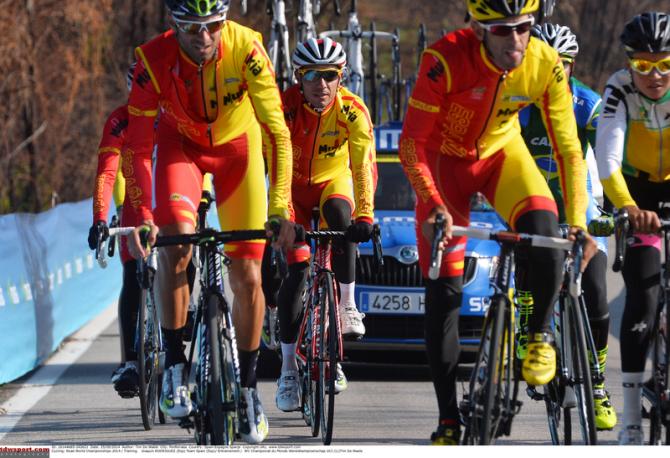
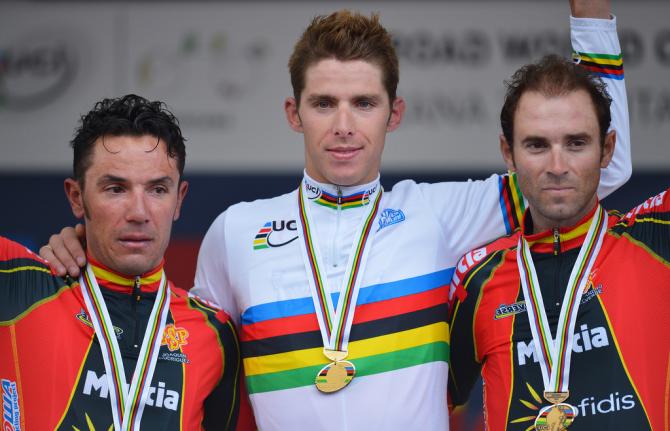
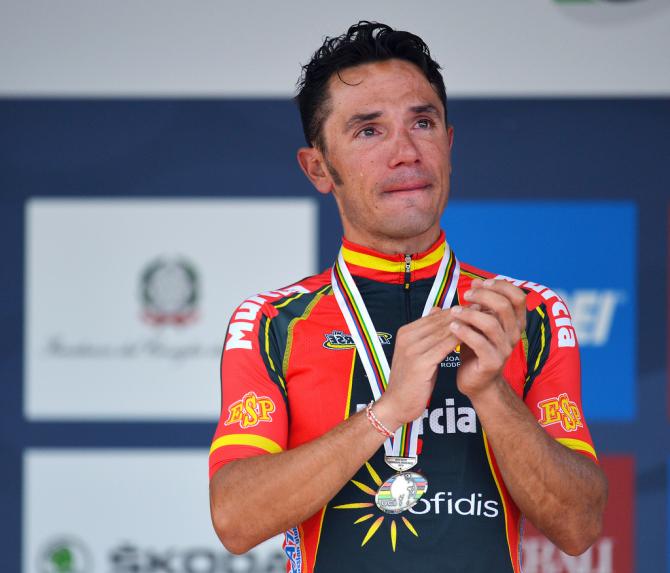
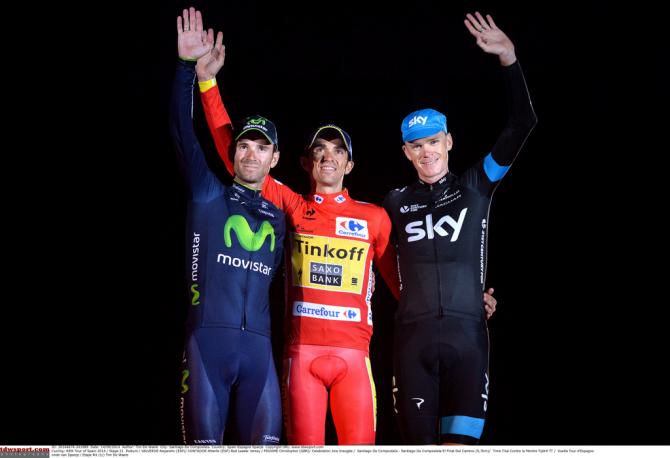
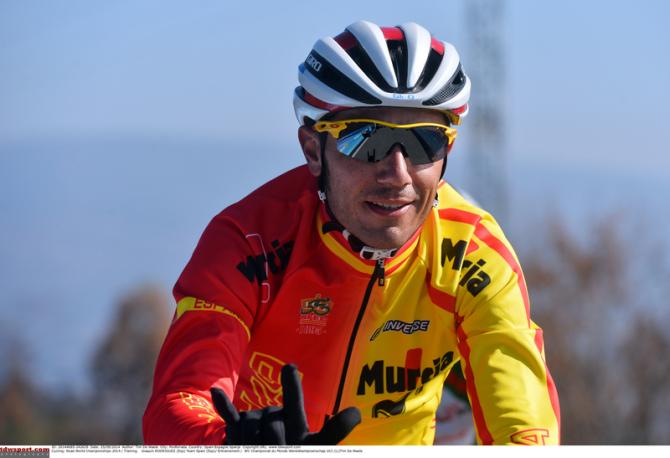
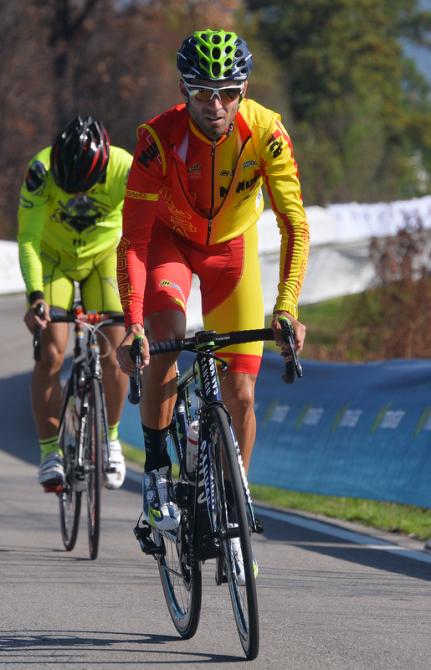
This year marks the tenth anniversary of Spain's gold medal in the 2004 World's, when Oscar Freire claimed his third victory in six editions - and speculation was rife that the country's greatest ever Classics star would soon clinch a record-breaking fourth.
Indeed, factor in Igor Astarloa's gold sandwiched between Freire's titles and Abraham Olano's trailblazing gold in the Colombian Worlds and a Spanish rider had stood tallest on the men's World Road Race podium in 1995, 1999, 2001, 2003 and 2004. Another victory for Freire and co. seemed only to be a question of (very brief) time.
Instead, since then, gold medals have been notable by their absence for the Spanish. And for five of the last nine World Championships Elite Men's Road Races - and the last three in succession - it has become almost a tradition that the Monday after the World's the country's newspapers contain a welter of mutual recriminations between members of the Spanish team.
Changing the man in the driving seat of the Spanish team car has not had any effect so far. Paco Antequera, who oversaw Freire's success, was then replaced by Jose Luis de Santos and since 2013, Javier Minguez. But neither De Santos, nor Minguez, have so far managed to navigate the Spanish men's team to another gold.
Last year perhaps marked the lowest point to date in the post-Worlds blame game amongst the Spanish. Florence saw a bitter controversy erupt over Alejandro Valverde's failure to mark former trade team-mate Rui Costa of Portugal sufficiently closely when the former Movistar rider began his pursuit of breakaway Joaquim Rodriguez - of Spain. The rest, as they say, is cycling history.
"Alejandro should have chased down everything, even the motorbikes, it was a serious mistake," blasted Minguez last year.
Repeating the past
Get The Leadout Newsletter
The latest race content, interviews, features, reviews and expert buying guides, direct to your inbox!
Divisions in the ranks of the Spanish team was hardly something new, either. Rewind to 2012 and the final image of Oscar Freire at a World Championships is a bleak one. After the race was over, the soon-to-retire Spanish leader stood near the finish - in the decidedly unglamorous setting of a muddy field crammed with national team support vehicles at the top of the Cauberg climb - and recriminated some of his team-mates for their lack of support as he battled - and failed - to chase down Philippe Gilbert. It was a depressingly low-key send off for a triple World Champion and Spain's greatest ever one-day rider.
Go back to 2011 and it doesn't get much better, though. Post Worlds, Freire was unhappy, again, at the lack of a lead-out man in the final kilometres of Copenhagen. "He disappeared," was how Freire laconically put it. Look at the 2008 Worlds fallout, and the comment of then trainer Paco Antequera in 2008 about the Spanish male team's performance was depressingly simple, too: "we were ridiculous." Rewind to 2007, and Freire's post-Worlds' comment of "the team gave it everything, but it wasn't enough," was equally short, and equally telling.
The fact that there have been a slew of podium placings for Spain since 2004 - a silver and three bronzes for Valverde, a bronze and a silver for Rodriguez - only makes the absence of a gold medal, and the absence of clear collaboration between its top stars, even more notable.
Making changes
Ten years on from Freire's third gold in Verona, and Rodriguez and Valverde are both back the Spanish men's team in Ponferrada, with Valverde the leader. Alberto Contador may have ruled himself out of the Worlds, but Samuel Sánchez's absence from Spain's start-list is said to be a way of ensuring the team is not too top-heavy.
However, Sánchez and Contador's absence gives added weight to the question of whether Rodriguez and Valverde can work well enough together to net a gold in their home Worlds.
Third and fourth overall in the recent Vuelta, during the Spanish Grand Tour, the two were hardly in the most collaborative of spirits when it came to chasing down Chris Froome, who finished second, or trying to shake off compatriot and final winner Alberto Contador.
However, the race itself was one story and how the two get on when off their bikes is another. During the Vuelta, Rodriguez was adamant that the two have a solid friendship despite their past history: he and Valverde might have the odd exchange of words, Rodriguez said, but they also shared food, for example, whilst en route to their hotels after a stage. So, on a personal level at least, it may not be so hard to build a working relationship for the Worlds between the two.
Rodriguez, for one, is very keen to play down the possibility of an internal dispute wrecking the Spanish team's chances again. "This [Worlds] circuit really suits Alejandro," Rodriguez said in an interview published on Wednesday. "In fact, it's difficult to find a circuit that doesn't suit him. Nobody's obliged to take part in this race. Once you do, then you have to do what you're ordered to do and give the best for the team."
However, Rodriguez recognised that his tears on the podium in Florence, as he realised that his silver could have been gold, would be difficult to forget. "It's not easy when they ask about it in every interview you do," he commented.
In any case, it's very likely his issues with Valverde in the 2013 Worlds are almost certain not to arise this time round. The Florence course was so hard - and the way the race played out – it was almost certainly Purito's best ever chance of winning the Worlds. And the Ponferrada circuit does seem more suited to Valverde than Rodriguez. Rodriguez's role will likely be far more that of an outside favourite, not central to the race like in Florence.
Assuming the weather, should it turn rainy on Sunday - or the very tricky descent into Ponferrada does not split the race apart - then on paper the chances are that there will be a much larger main peloton when the final lap starts than in Florence last year. And should a break sheering off in the last part of the race contain Valverde, then Spain's options of gold could be very high indeed.
The Valverde-Rodriguez debate is therefore perhaps a somewhat artificial one given the Ponferrada circuit is so suitable for the Movistar rider. Rather the key question for Spain is whether they will be able to control the race, as they are widely expected to, and if they can pull back the ‘wrong' sort of breaks in the final, crucial, third of the course prior to Valverde making his move. By the time that part of the jigsaw has fallen into place - or not - the way the team's two star figures work together may not actually matter.
Alasdair Fotheringham has been reporting on cycling since 1991. He has covered every Tour de France since 1992 bar one, as well as numerous other bike races of all shapes and sizes, ranging from the Olympic Games in 2008 to the now sadly defunct Subida a Urkiola hill climb in Spain. As well as working for Cyclingnews, he has also written for The Independent, The Guardian, ProCycling, The Express and Reuters.
